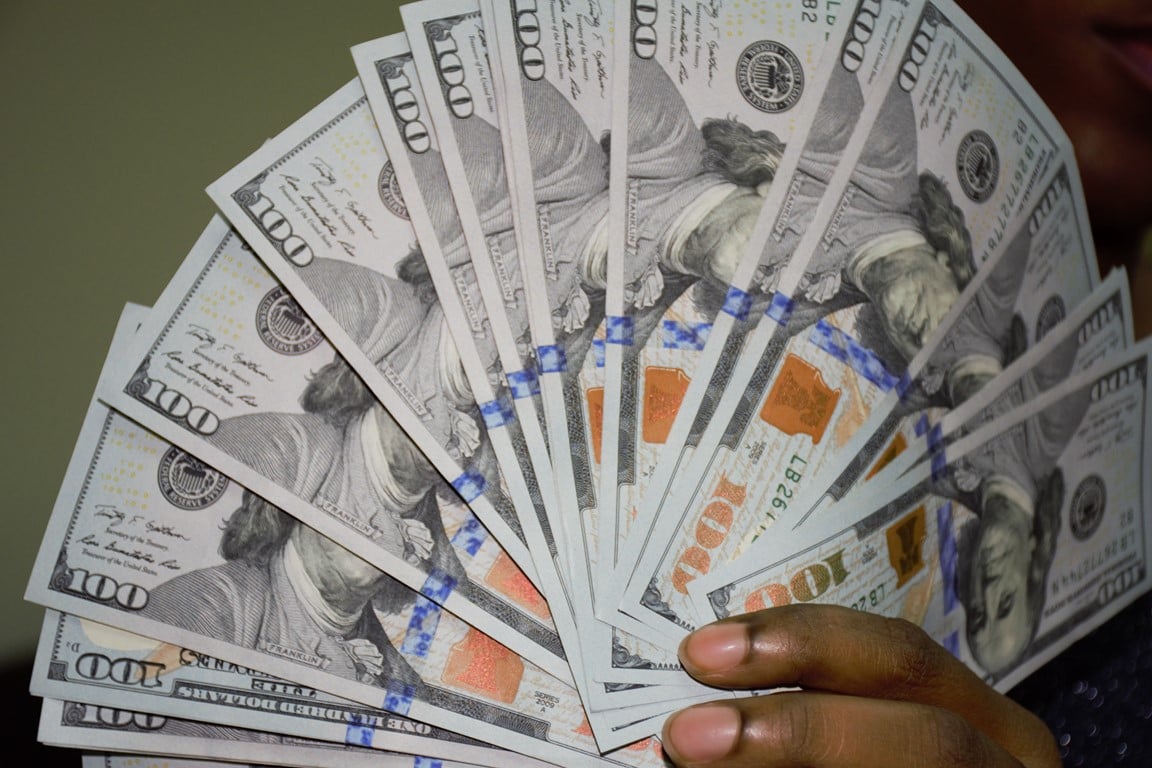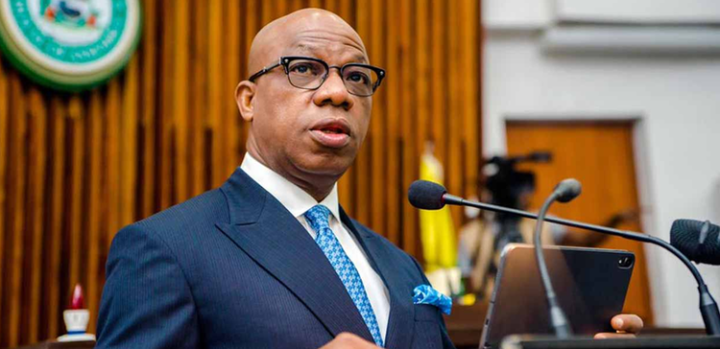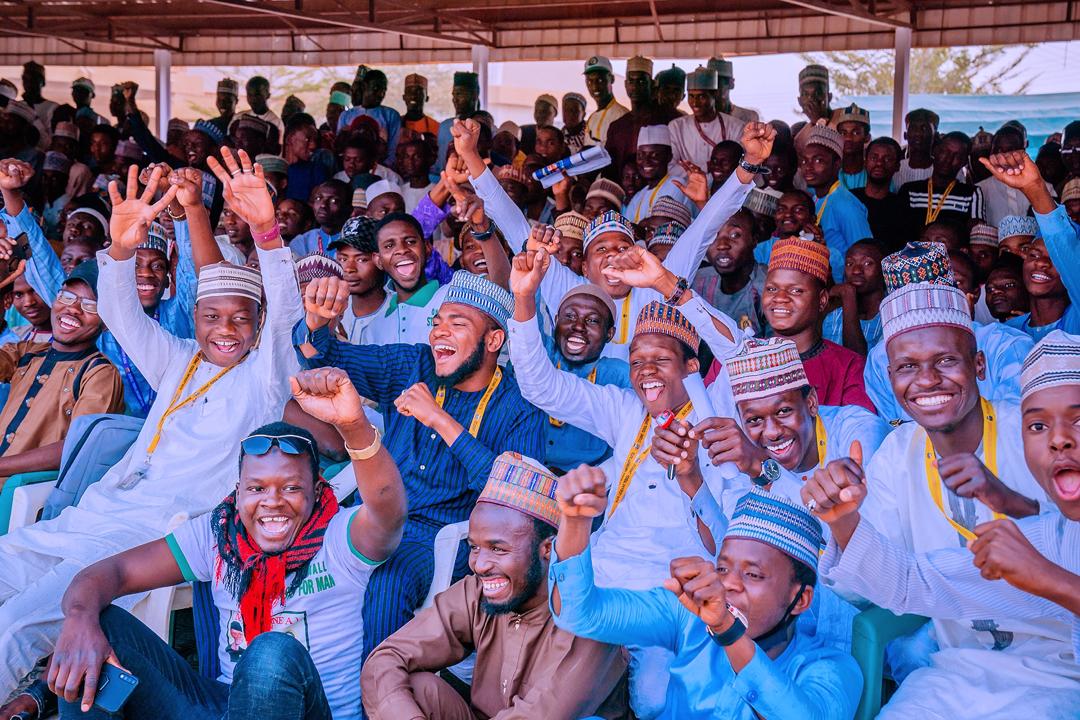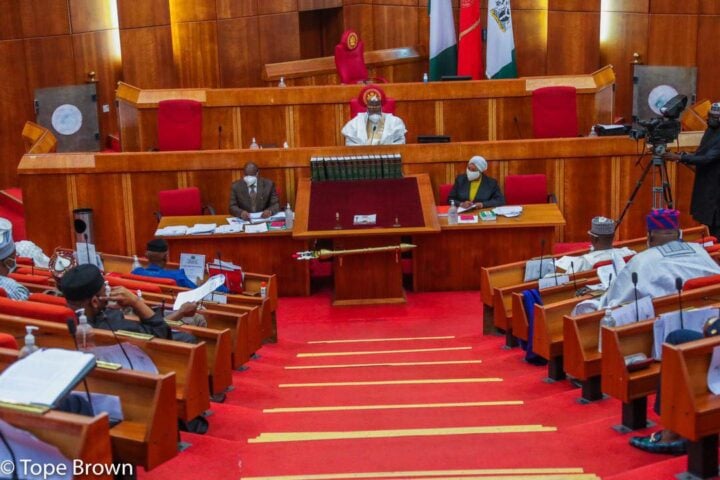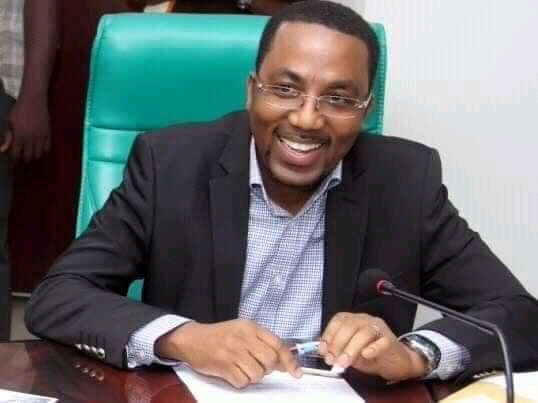BY MON-CHARLES EGBO
Every economic index is a pointer that Nigeria is on the brink, ignobly sliding into the class of nations where self-sufficiency has become a mirage. Yet and despite the hues and cries over the steady rise in her public debt profile, there is no sign that the borrowing tendencies of the federal government will abate anytime soon. Even the grim prospects of this gloomy future already lurking on the horizon sequel to the humongous debt so far accumulated or the prevailing debt-revenue ratio, cannot make the ultimate difference in attitude.
Yes, the borrowing frequency cannot be wished away because there is a missing link implying that Nigeria will continue to witness motion without movement.
Granted, borrowing is a normal practice especially in a developing economy, but it becomes the worst of strategies when borrowing for consumption rather than production. It is even more devastating when the borrowings are principally for servicing of the existing debts coupled with the sheer absence of pragmatic measures or capacities for sustainability, not to talk of a possible halt to future borrowing.
Advertisement
Sadly, this is the pathetic lot of Nigeria where the emerging challenges far outweigh the possibilities for socio-economic revitalization let alone expansion, thus making a worsened economic crisis inevitable.
And ironically, popular opinions place blames for this rapidly unfolding precarious situation on the legislature. To them, the national assembly has since abdicated its responsibilities of checks and balances for which the executive always has its ways when it comes to borrowing requests because the necessary questions are not being asked. Prominently, this is the parameter for the comparison between the present and immediate past parliaments. And of course, it is catching fire among the populace largely due to the orchestrated elitist manipulation of the vulnerable as also being facilitated by the fallouts of the economic hardship in the land.
But quite objectively and given Nigeria’s peculiarities, past leadership failures indeed created the opportunities for the socio-economic woes which incidentally the present leadership inherited, while the masses, with the elites accounting for the larger chunk, are culpable in the propagation. Ignorantly or deliberately, the predominant assumption is that citizens’ civic responsibilities begin and end with the leadership recruitment processes or that it is just about the casting of votes, forgetting that elections as well bring in both good and bad governance. Most Nigerians seem not to know that the people’s obligations entail actively-but-objectively engaging the leadership, cooperating with the government, saying and doing the right thing all the time as well as speaking truth to power, timely and appropriately. No leadership ever succeeds without the support of the followers.
Advertisement
And then for both the government and the citizens, it calls for diligent commitment to an exemplary sense of accountability on both ends. Other statutory demands include willingness to collaborate and make necessary sacrifices, demonstration of strategic thinking and proactive dispositions including a commitment to asking the right questions and offering the right answers, all timely. Standing to be counted is certainly not just about partisanship, regionalism and religion. Genuine quest for national development is more about imbibing the Kennedyian principle of seeking what to do for one’s country and not just what the country does for them. Succinctly, nation-building is about patriotism and nationalism.
For instance and retrospectively, Ibrahim Babangida’s regime in a rare democratic norm in a dictatorship threw open the debate on the desirability or otherwise of taking an International Monetary Fund, IMF, loan of US$2.5 to rejig the economy. According to Senator Orji Uzor Kalu, who verifiably was not in government then, “opinion was sharply divided between those who felt we should take the loan and those who thought otherwise. For me there was a middle course I felt we should thread. I believed that Nigeria required the equivalent of the kind of which the IMF bailout package promised to shore up the sliding economy. At the same time, I thought that the conditions attached would, at least in the short term, make life terrible for Nigerians. These conditions included devaluation of and floating of the naira, privatisation of social services, and rationalisation of the civil service, among others. So, my attitude was one of a complete rejection of the IMF loan. I felt since we needed the money we must find out how we could get it without being subjected to the harrowing terms proposed by the IMF. We should source it internally. Satisfied with this logic, I decided to add my voice to the cacophony of voices that was already choking the public space. I suggested that instead of accepting the IMF loan and suffer the consequences of its onerous terms and conditions, wealthy Nigerians should lend the money to the government, and we had a lot of them in the country, with unimaginable but idle funds stashed up in foreign bank accounts. Being one of the wealthy Nigerians myself, I decided to walk the talk by offering to give the country US$800,000 loan. And I challenged other wealthy Nigerians to follow suit so that together we could rescue the country from the economic crisis and save future Nigerians from economic slavery”.
What else could better describe love for the country? That Kalu then was not in government underscores that patriotism and nationalism do not come with government positions and equally are not limited to giving, but involve seeking ways to make government deliver for the benefit of the society. And again, this is the missing link in today’s Nigeria.
Moving forward, records show that the government of the day is doing a lot in combating the pitiable infrastructure deficit bedevilling the country. But the reality is that these investments are not yet translating to improved quality of life for the citizenry. Hence, the sustained outcry against the government’s proposal to borrow is unquestionably justified, though being improperly channelled.
Advertisement
Understandably also, it is this urgent need to make life meaningful for the masses that shapes the overall actions of the 9th national assembly, particularly the senate. Christened the Senate That Works For The People, it is favourably disposed to things that add value to the people. It consciously does its job without unnecessarily hurting the people by grounding the economy all in a bid to be seen as being ‘truly independent’. However, it has severally demonstrated that this overriding necessity for collaboration with the other arms of government in serving the people should not breed compromise. Diligent research offers sufficient proof in this regard.
And as for the president of the Senate, Ahmad Lawan, every arm must be seen to be delivering in their mandates provided that they are being guided by the national interest and welfare of the citizenry. According to him on why he did not toe the path of his predecessor in declining approvals to executive’s loan requests, “the situations are not the same. In 2016 there were no details. I think the presidency has learnt its lesson. This time, the presidency brought the requests with every possible detail. If we don’t have money and you have projects to build, how will you provide infrastructure that you need? But one thing is that, we are going to be critical that every cent that is borrowed is tied to a project. These are projects that will have spill-over effects on the economy and we will undertake our oversight so well to ensure that such funds are properly, prudently, economically and transparently applied on those projects. I want to inform this gathering and, indeed, Nigerians that the letter conveying the loan request of the executive came with every possible detail and, in fact, we will ensure that we are getting the right information from the executive arm of government…. you will agree with me that some projects are time- bound, so such projects suffer. Where revenues could not be enough, definitely not every aspect of the budget will be implemented. But it is our desire that every aspect of the budget will be implemented”.
Except for other reasons beyond good governance, this position is explicit. President Muhammadu Buhari won his elections based on what he promised to do and what he was doing. So all he needs are complementary and collaborative efforts within the ambits of the laws.
So instead of unfairly portraying the legislature in the bad light relative to our economic challenges, we should seek to always argue from the position of adequate and balanced information. We should acknowledge that world over, responsible and responsive parliaments are those that enjoy the people’s support and cooperation through sustainable exchange of information and ideas. In other words, performing legislatures have a functional mechanism for robust citizens’ engagement and participation in legislative processes and governance generally; wherein the people actively monitor parliamentary activities, share information by asking the right questions and demanding the right answers as well as speaking up, timely and appropriately. For the umpteenth time, no government ever succeeds without the people.
Advertisement
As such, it is expected that each time any loan proposal is made public, the masses should cordially rally around their representatives, through the appropriate channels to express their opinions to effectively shape legislative outputs. Particularly, in this case, such interfaces provide veritable platforms for interrogation of the appropriateness or otherwise of the objectives for-which the loans are being taken, including the terms and possible alternatives.
Among others, the people being the target-beneficiary see where the infrastructural developments occur and equally acknowledge the necessities of such relative to the economy as well as the scope, quality and cost of the projects. Hence they are well-placed to expose corruption, plug revenue leakages and provide their representatives with relevant details that lead to robust debates at the plenary. Above all, it is only in deliberate citizens’ participation that we can fairly assess and evaluate the legislature, aware that unapologetically, any representative that does not embody the ideals and aspirations of their people is adjudged a failure.
Advertisement
Therefore rather than unwittingly harming our national image and reputation, especially based on partisan and self-serving considerations, may we show sufficient understanding that constructive criticisms capable of facilitating good governance go way beyond obsessions with talking about individuals, political parties and government institutions. We must admit that unless the public functionaries, both elected and appointed, begin to uphold and promote the culture of excellence, while the elites revive and sustain the culture of giving back to the society, and then the people become self-motivated to close ranks with the government towards entrenching transparency at all levels of governance, the probity and accountability that drive good governance would remain elusive and borrowing must continue. We should appreciate where we are coming from and then concede that open hostilities do not in any way advance the social contract between the people and the government.
And finally, are there no more Nigerians in the mould of Senator Orji Uzor Kalu who are persuaded out of patriotism and nationalism “to follow suit so that together we could rescue the country from the economic crisis and save future Nigerians from economic slavery”?
Advertisement
Egbo is the print media aide to the president of the senate
Advertisement
Views expressed by contributors are strictly personal and not of TheCable.
Add a comment
